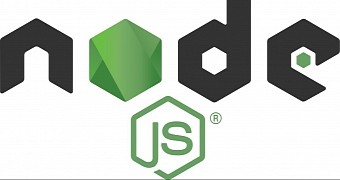Node.js, the widely-used open-source and cross-platform JavaScript runtime environment for executing server-side JavaScript code, is now officially available as a Snap package for the Linux platform.
Now that Linux is the preferred development platform for developers visiting Stack Overflow, the need for running the latest versions of your favorite programming languages, frameworks and development environments has become more and more important, and Canonical's Snappy technologies are the answer.
NodeSource, the organization behind Node.js, announced today they made a Snap package to allow Linux developers to more easily install the popular JavaScript runtime environment on their operating systems. Snap is a containerized, universal binary package format developed by Canonical for Ubuntu Linux.
"The Node.js snap contains the Node.js runtime, along with the widely-used package manager npm. So with a single command, developers can be up and running with their chosen version(s) of Node.js and supporting tools with no need for external repos or personal package archives (PPAs)," said NodeSource.
The advantage of using the Snap package is obvious, as you'll always receive the latest Node.js release as soon as it's released upstream. Thanks to Canonical's Snappy technologies, NodeSource can deliver the latest Node.js version to Linux system supporting Snaps within hours or minutes.
Here's how to install Node.js as a Snap on Ubuntu, other Linux distros
To install Node.js on your Snap-enabled GNU/Linux distribution, all you have to do is to run the command below. Canonical's Snappy technologies are currently supported on Ubuntu, Debian, Linux Mint, Fedora, Arch Linux, OpenSuSE, Solus, Gentoo Linux, and some other embedded operating systems like OpenWrt and OpenEmbedded.
sudo snap install node --classic --channel=8/stable
As NodeSource maintains several versions of its Node.js JavaScript runtime environment, they also made it easier to change channels, as well as to install the latest bleeding-edge version if you feel adventurous. Use the first set of commands listed below to change the channel and the second one to install the bleeding-edge version.
sudo snap switch node --channel=9/stable
sudo snap refresh
sudo snap install node --classic --channel=edge

 14 DAY TRIAL //
14 DAY TRIAL //